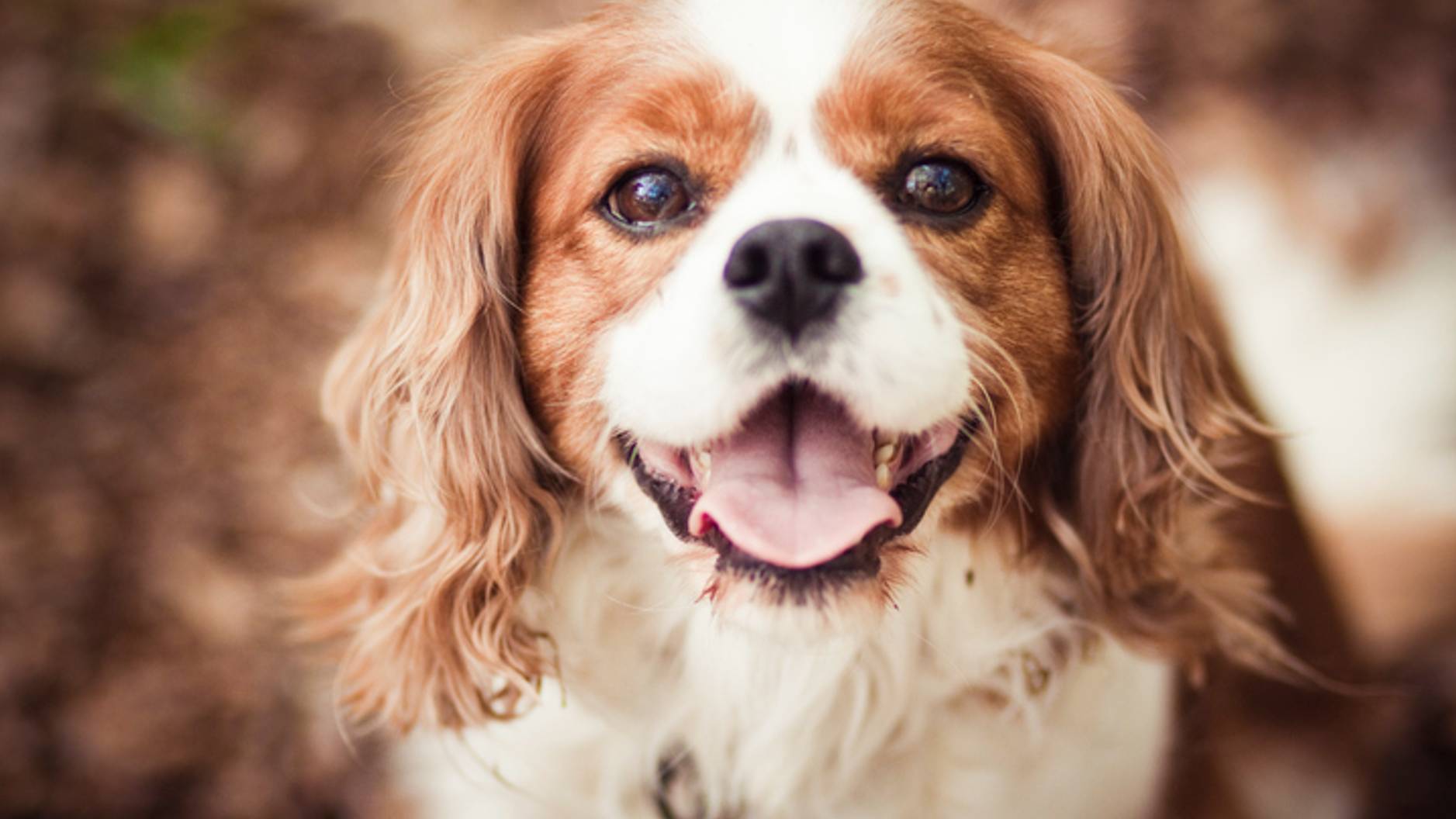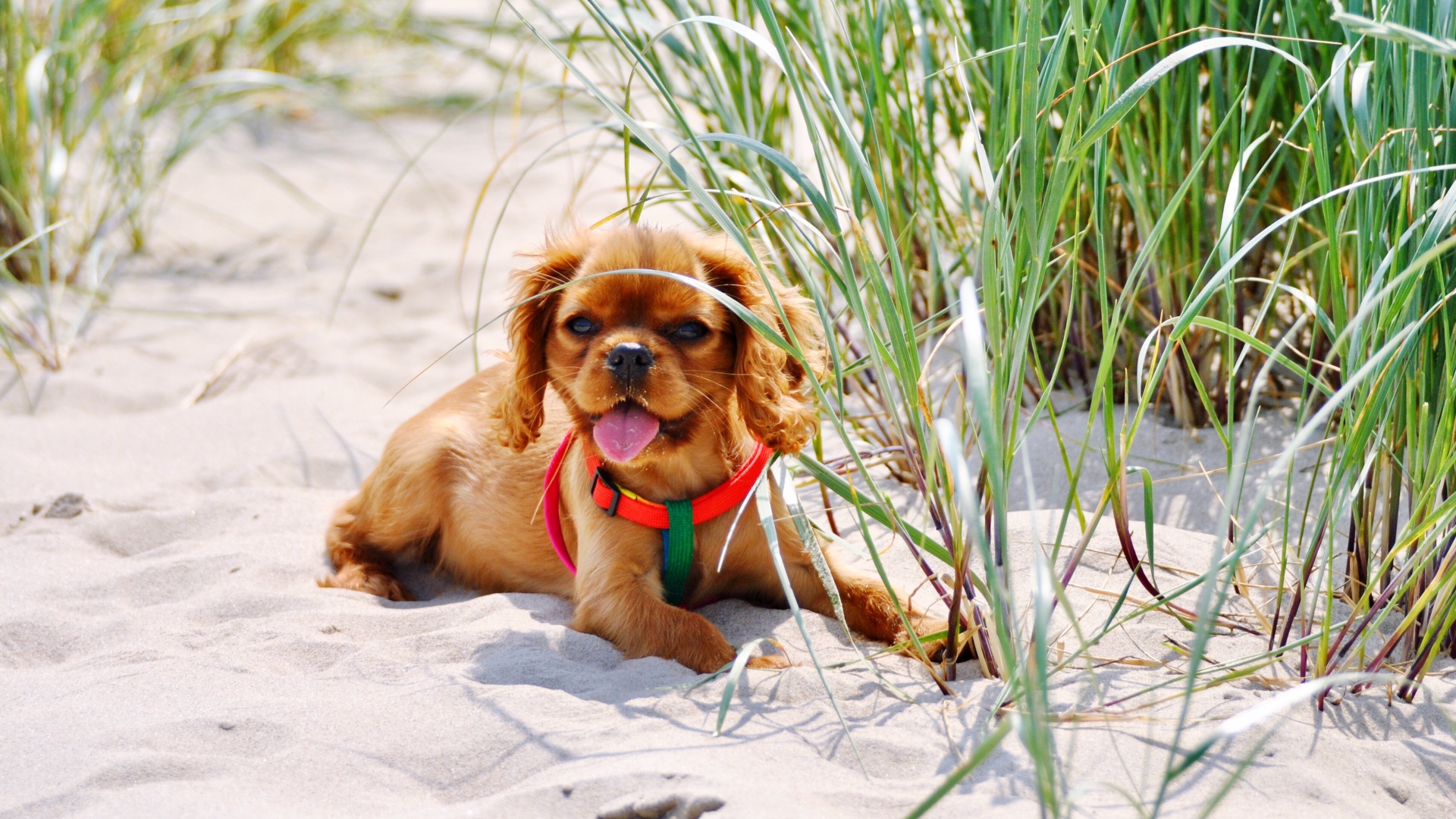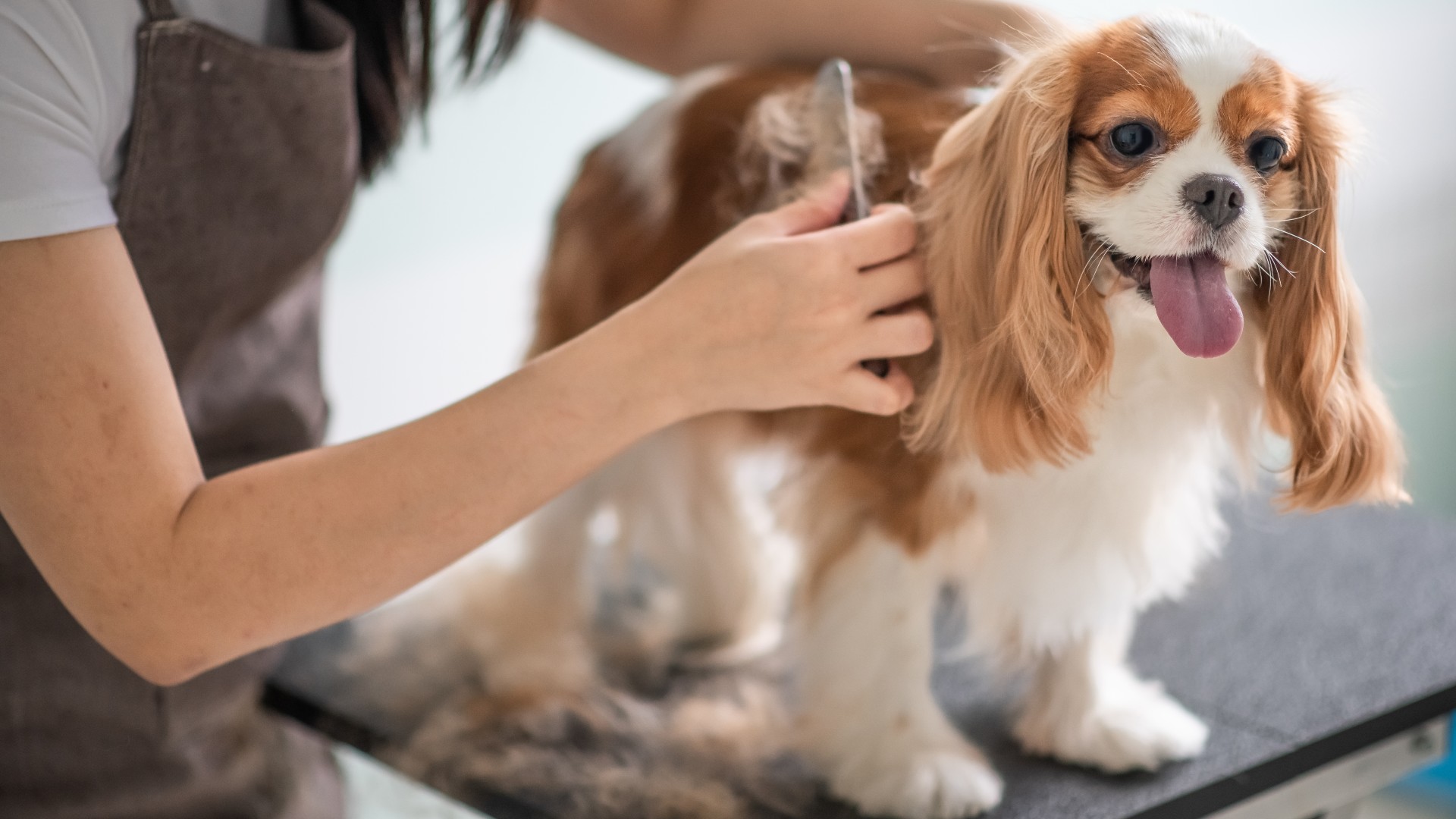Cavalier King Charles Spaniel: Breed profile
The Cavalier King Charles Spaniel is loveable, sociable and a perfect companion, read on to find out if this pooch is for you

Get the best advice, tips and top tech for your beloved Pets
You are now subscribed
Your newsletter sign-up was successful
Cuddly and calm, Cavalier King Charles Spaniels are among the most affectionate dog breeds. Classed as a toy dog due to their small size, Cavaliers grew in popularity between the 16th and 18th centuries when they became a particular favorite among royalty – hence why they were named after King Charles II.
Although they were later replaced in many a heart by the pug, a determined effort to revive the breed came in the 1920s. Rich New Yorker Roswell Eldridge offered a whopping £25 to anyone who could breed a longer snouted dog like the ones he'd seen in paintings of Charles II. At that point King Charles spaniels had shorter snouts and Eldridge's pleas were met by a breeder called Mostyn Walker in 1926.
Recognized by the American Kennel Club in 1995, Cavalier King Charles Spaniels have a large number of fans once more. They're amazing family pets thanks to their gentle temperament, they are also one of the most loyal dog breeds. They are also natural athletes and yet they do like to snuggle up on your lap as well. Coming in four colors – Blenheim, ruby, black-and-tan and tricolor – they're adorably cute with their big round eyes. Interested in become a pet parent to one? Then read on.
How much exercise does a Cavalier King Charles Spaniel need?
Life expectancy: 9-14 years
Average weight: Male: 18lbs/8.2kg Female: 13lbs/5.9kg
About the same as: a microwave oven
Cavalier King Charles Spaniels often seem to be on the go, enthusiastically pottering around after you as they try to catch your attention. As such, they can appear to possess limitless energy but, even so, you don't need to personally spend an excessive amount of time getting them fit. While they are prone to packing on the pounds, around an hour of exercise each day will suffice, spread over a couple of sessions.
So long as half that time is spent walking, you could use the other half to engage in some games such as fetch or hide and seek – activities that will help to mentally stimulate them. If you have a secure yard, then let a Cavalier run around. It's also worth investing in some of the best dog toys to prevent these pooches from becoming bored. This can steer them away from unwanted behavior.
Are Cavalier King Charles Spaniels easy to train?
Suitable for: Anyone who wants a small family dog
Not suitable for: Anyone who is out of the house for large periods
Temperament: Affectionate, sociable, gentle
Shedding: Average
On the whole, you shouldn't have a great deal of trouble training a Cavalier. Although they are not considered to be the most intelligent of dogs (a 1994 study by canine psychology professor Stanley Coren, published as The Intelligence of Dogs, placed the breed 73rd out of 138), they're definitely clever enough to figure what you're asking of them and carry out your instructions, though.
Cavalier puppies are generally best trained in short bursts with some owners believing five to 10 minutes is a decent amount of time. Arm yourself with some of the best dog treats (just don't go overboard – they're prone to obesity) and you'll find this breed will respond well by trying to please you. You may struggle a little more with basic potty training but the best approach is to create and stick to a schedule.
Get the best advice, tips and top tech for your beloved Pets
One of the crucial things to bear in mind is the need to be positive, patient and persistent. Never shout at a Cavalier otherwise you'll scare them and find they'll become far less responsive. But be firm and consistent. If you start melting at the sight of their gorgeous puppy eyes within seconds of them doing something wrong such as chewing on a table leg, then they may see that as an activity they'll like to try again.
Are Cavalier King Charles Spaniels good with kids?

Cavaliers are one of the most adorable family pets you'll ever come across and they absolutely love being around people. As friendly and affectionate social animals, they'll quickly become firm friends with children, engaging well with a host of games and simply loving the interaction.
Cavaliers are a toy breed, however, it is particularly important that kids know how to behave around them. Children should be taught not to be rough because there is a good chance the dog could be accidentally injured. Take extra care with babies, too. There is a chance that a Cavalier could become jealous of a new arrival. Good socialization from a young age and training a Cavalier not to jump on people can help enormously.
What do Cavalier King Charles Spaniels eat?
Cavaliers sure like to eat and because they are so adorable, people tend to like feeding them pretty much anything that looks tasty. As with many dogs, there's a strong temptation to start handing them leftovers from your plate but, just as you shouldn't go overboard with treats during training, you're going to be doing more harm than good.
Cavaliers will put on weight so low-calorie treats would be a good start. In terms of their general diet, however, stick to between half and one cup of high-quality food spread across two meals and consider buying formulas created specially for the breed. By feeding Cavaliers at the same time each day, you'll also ease them into a routine.
Do Cavalier King Charles Spaniels bark a lot?
Not really. Cavaliers may make a noise if someone is walking up the path to your front door but even that cannot be guaranteed. As such, you shouldn't expect them to be good guard dogs nor will you be reaching for the earplugs any time soon.
One thing you do need to wary of, though, is leaving a Cavalier alone for too long. They will almost certainly suffer separation anxiety and, while you're unlikely to hear it, they'll persistently bark and maybe engage in destructive behavior. This is a breed that needs to be around humans and if you are going to be away from a Cavalier for large chunks of their day, perhaps consider a different breed or work very hard on separation training.
Are Cavalier King Charles Spaniels aggressive?

Cavaliers are friendly little things so if the breed does display signs of aggression, then you should immediately investigate the cause. The dog could be feeling pain or it may fearful and seeking to protect itself. There could also be an underlying medical issue so check for other signs such as a loss of hair or lethargy.
Rest assured, though, that Cavaliers are often in lists of dog breeds least likely to bite. They are also rather friendly with other pets including cats although they do have a prey drive so keep an eye on them around very small animals whether inside the house or outdoors.
Do Cavalier King Charles Spaniels shed a lot?
Amount Of Shedding: Average
Easy To Groom: Yes
General Health: Good
Potential For Weight Gain: Low to Moderate
Cavalier King Charles Spaniels have medium-length, silky hair and it will moderately shed all year round, with peaks in the spring and fall. They will need regular grooming to prevent matting and tangling of their fur and, during those peak months, it'll be a good idea to do so daily just to keep those loose hairs at bay.
One area to keep an eye on are the feet. Cavaliers have hair that constantly grows in this area and you want to keep the hairs flowing free so that it doesn't make it harder for the dog to walk. Other than that, you'll need to keep a Cavalier's nail trimmed at least twice a month and you should also brush their teeth. You may also want to consider taking them to see a professional groomer from time to time to ensure they look their absolute royal best.
Wisdom Panel Breed Discovery DNA Kit | Amazon
Not sure exactly what breed your dog is? This kit screens for 365+ breeds – because knowing every detail about your dog helps you understand how best to care for them.
Cavalier King Charles Spaniel health problems
Obesity is perhaps the biggest concern but that is easily tackled with the required amount of exercise and a decent diet. One of the most common conditions, however, is Mitral Valve Disease which is a problem affecting the heart. Damage can cause blood to flow backwards into the heart's chamber rather than out from the organ and it is the leading cause of death.
Indeed, most Cavaliers develop signs of having the disease later in life but it can present early. Another problem to watch out for is Syringomyelia, which affects the spinal cord and brain. It is caused by the development of fluid-filled cavities within the spinal cord. It is always worth investing in the best pet insurance.
Should I get a Cavalier King Charles Spaniel?
Absolutely! Cavaliers are a wonderful breed and great for people who are reasonably active and seeking a bundle of fun. Sociable, gentle and playful, this spaniel breed is perfect for families. A Cavalier's small size means you don't need an abundance of space and because they're relatively easy to train and have around the home, they are great for anyone who has never owned a dog before. You just need to be wary of being a parent to a Cavalier if you're going to be away for long periods of time.
Want to learn more about the breed? Here are our favorite Cavalier King Charles Spaniel facts and a comparison of the Cavapoos vs Cockapoo.

David Crookes has been a journalist for almost 30 years and he has written for a host of magazines, newspapers, websites and books including the World of Animals Annual, BBC Earth, Live Science, The Independent and Tom’s Guide.
Born in England, he lives with two cats but he’s also keenly interested in the differences between the huge number of dog breeds – in fact, you can read many of his breed guides that he’s written in collaboration with vets here on PetsRadar.
With a lifelong passion for technology, too, he’s always on the lookout for useful devices that will allow people to keep their pets happier and healthier, and provide them more time to spend together.
David has a degree from Durham University, as well as postgraduate diploma in journalism from the University of Central Lancashire.

